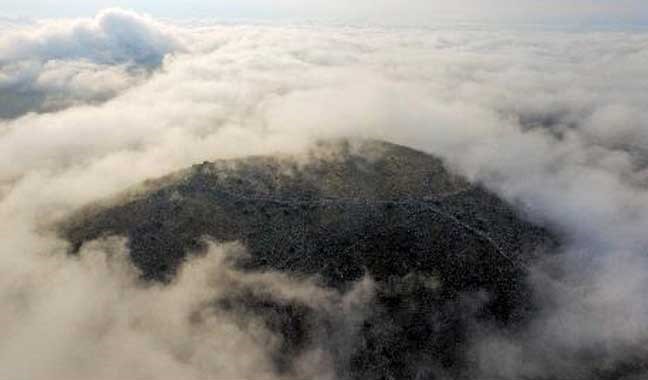Scientists have discovered the remains of a 2,500-year-old city in Greece – a finding that can change our understanding of the area traditionally considered to be a backwater of the ancient world.
Archaeologists from the University of Gothenburg in Sweden have begun exploring a previously unknown ancient city at a village called Vlochos, five hours north of Athens.
The remains are scattered on and around the Strongilovouni hill on the great Thessalian plains and can be dated to several historical periods.
“What used to be considered remains of some irrelevant settlement on a hill can now be upgraded to remains of a city of higher significance than previously thought, and this after only one season,” said Robin Ronnlund, PhD student at the University of Gothenburg.

Remains of towers, walls and city gates can be found on the summit and slopes, but hardly anything is visible on the ground below, Ronnlund said.
The ambition is to avoid excavation and instead use methods such as ground-penetrating radar, which will enable the team to leave the site in the same shape as it was when they arrived.
“We found a town square and a street grid that indicate that we are dealing with quite a large city. The area inside the city wall measures over 40 hectares,” Ronnlund said.
“We also found ancient pottery and coins that can help to date the city,” he said.
“Our oldest finds are from around 500 BC, but the city seems to have flourished mainly from the fourth to the third century BC before it was abandoned for some reason, maybe in connection with the Roman conquest of the area,” he added.
The findings can provide important clues as to what happened during this violent period in Greek history.
“Very little is known about ancient cities in the region, and many researchers have previously believed that western Thessaly was somewhat of a backwater during Antiquity,” Ronnlund said.
“Our project therefore fills an important gap in the knowledge about the area and shows that a lot remains to be discovered in the Greek soil,” he said.

















